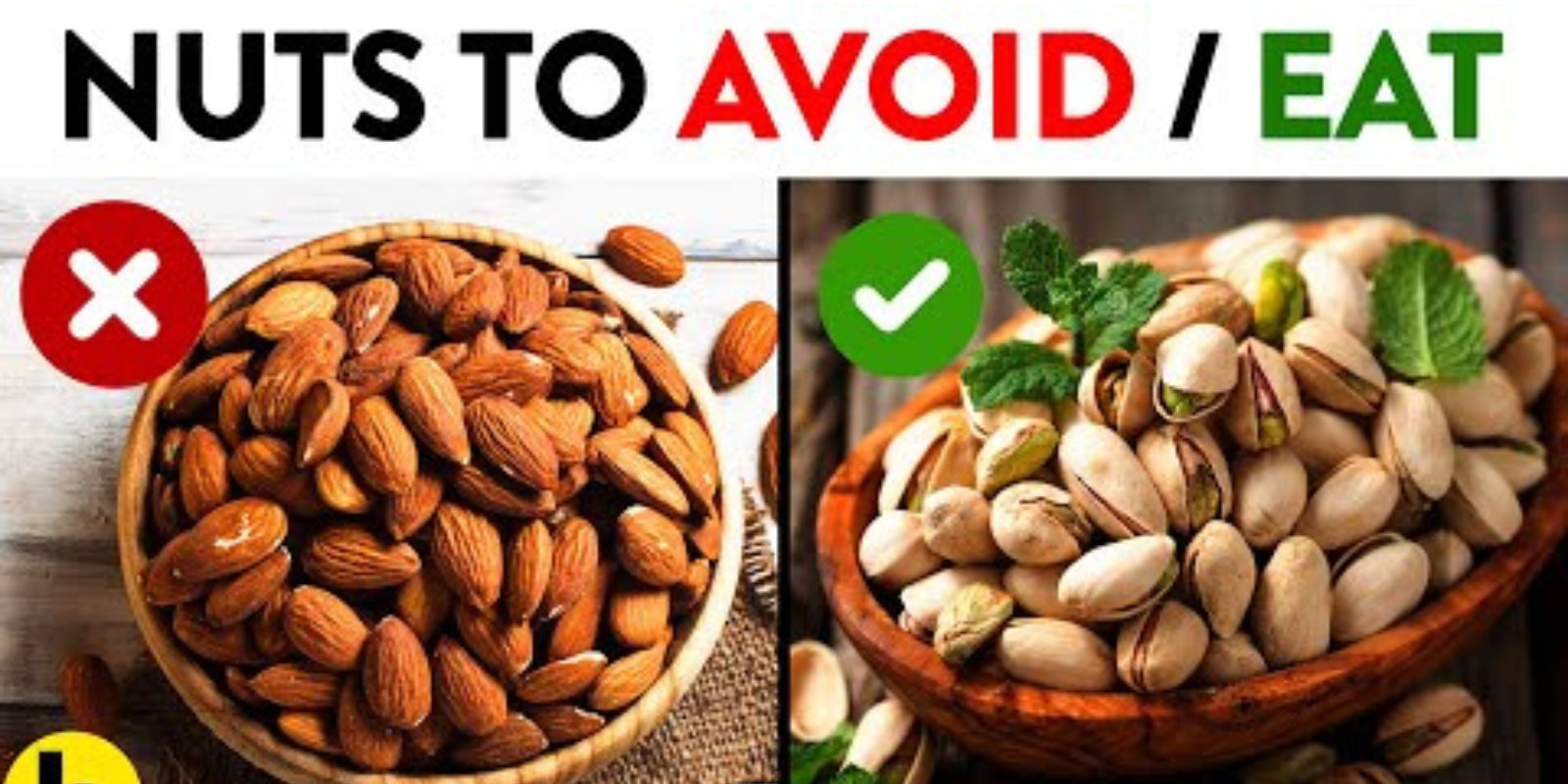Nuts are nutrient-dense foods that offer a variety of health benefits, but some are healthier choices than others due to differences in nutritional content. Here are six nuts you should be eating and six you should consume in moderation or avoid:
Nuts You Should Be Eating:
- Almonds: Almonds are rich in healthy fats, fiber, protein, vitamin E, magnesium, and antioxidants. They have been associated with improved heart health, lower cholesterol levels, and better blood sugar control.
- Walnuts: Walnuts are high in omega-3 fatty acids, which are beneficial for heart health. They also contain antioxidants, fiber, protein, and vitamins and minerals like vitamin E, manganese, and copper.
- Pistachios: Pistachios are a good source of protein, fiber, healthy fats, and antioxidants. They may help improve cholesterol levels, promote heart health, and support weight management due to their satiating properties.
- Brazil Nuts: Brazil nuts are an excellent source of selenium, a mineral with antioxidant properties that plays a crucial role in thyroid function and immune health. They also contain healthy fats, protein, fiber, and other essential nutrients.
- Cashews: Cashews are rich in monounsaturated fats, which are heart-healthy fats that may help lower cholesterol levels. They also provide protein, fiber, vitamins, and minerals like magnesium, phosphorus, and zinc.
- Pecans: Pecans are packed with antioxidants, including vitamin E and ellagic acid, which may help protect against oxidative stress and inflammation. They also contain healthy fats, fiber, and essential nutrients like manganese and copper.
Nuts You Should Consume in Moderation or Avoid:
- Macadamia Nuts: While macadamia nuts are high in healthy fats, they are also the highest in calories among nuts. Consuming them in excess may lead to weight gain. Enjoy them in moderation as part of a balanced diet.
- Pine Nuts: Pine nuts are nutritious but are often expensive. They are high in calories and fat, so it’s essential to consume them in moderation, especially if you’re watching your calorie intake.
- Chestnuts: Chestnuts are lower in fat and calories compared to other nuts, but they are also lower in protein and healthy fats. While they can be part of a healthy diet, they are not as nutrient-dense as other nuts.
- Hickory Nuts: Hickory nuts are high in calories and fat, similar to macadamia nuts. While they provide some nutrients, they are not as widely available as other nuts and may be consumed less frequently.
- Peanuts: Peanuts are technically legumes, but they are often grouped with nuts due to their similar nutritional profile. While peanuts offer some health benefits, they are also commonly processed and may contain added salt, sugar, or unhealthy fats in commercial products. Choose unsalted, natural peanuts and consume them in moderation.
- Coconut: Coconut is technically a fruit, but coconut meat and coconut products (such as coconut flakes or coconut oil) are often classified as nuts or nut products. While coconut can be part of a healthy diet in moderation, it is high in saturated fat, which may negatively impact heart health if consumed in excess.
When incorporating nuts into your diet, it’s essential to consider portion sizes and choose unsalted, unflavored varieties whenever possible. Nuts can be a healthy and satisfying snack when enjoyed in moderation as part of a balanced diet.

